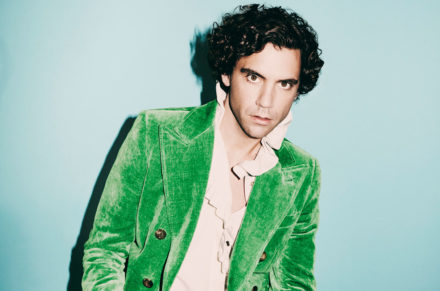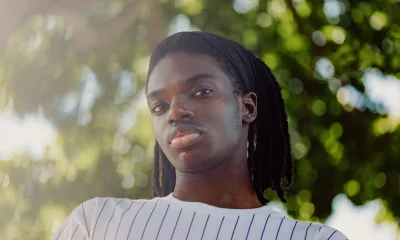Music & Concerts
Buttery new Mika album assembles pastiche of throwback pop polish
As hit singles dried up, out singer/songwriter shows no sign of creative disenchantment
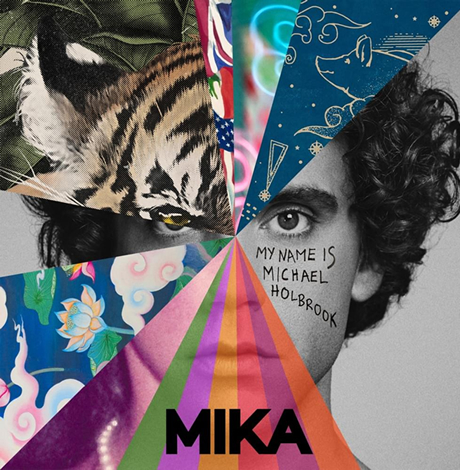
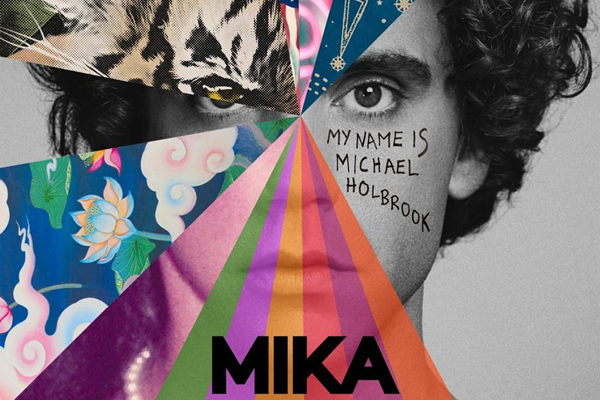
First, I gotta get something off my chest: despite having released a glowingly wonderful new album, Mika has irritated me.
First, his current “Tiny Love Tiny Tour,” which kicked off last month and is on hiatus before resuming in November in Europe, featured a pathetically paltry three dates in the continental U.S. (there were two others in Montreal and one in Mexico City). Um, seriously? Your first U.S. tour in six-and-a-half years and you can only give us three dates? Not even a Miami show, where you actually live and recorded the new album? WTF?
I toyed with the idea of trekking up to New York for his show there, but am so glad I didn’t — he only played a paltry 70-minute set and completely ignored his last album, the 2015 masterpiece “No Place in Heaven.” He admitted in a recent Rolling Stone interview he used the no-frills U.S. dates to test material to unveil in a full-fledged production for the European dates. Um, gee, thanks. I mean, yeah, he’s a way bigger star in Europe so no surprise he keeps his eggs mostly in that basket, but this was such an egregious “fuck you” to his U.S. fanbase, it’s positively insulting.
It’s hard to be too upset however as his new album “My Name is Michael Holbrook” (***1/2 out of four), out last week, is almost as good as “Heaven” and its equally solid predecessor “The Origin of Love” (2012).
The 36-year-old openly gay pop singer/songwriter has hit an unfair sales slump. All his big hits were from his first two albums (“Life in Cartoon Motion” and “The Boy Who Knew Too Much”). They’re hook-laden ear feasts, too, but the last two albums and the new one feature a leaner, more sophisticated pop craftsman that sadly hasn’t caught on. Sales for “Origin” and “Heaven” paled in comparison to the first two records and yielded no major hit singles either here or abroad. “Popular Song,” an Ariana Grande duet, hit no. 87 on the Hot 100. His biggest hit, “Grace Kelly” was a worldwide smash in 2007 but only made it to no. 57 here.
Washed up at 36? What’s going on here? Thankfully, artistically that’s not the case.
Written entirely by Mika (in most cases with a bevy of co-writers) and a new production team (Mark Crew and Dan Priddy) “Holbrook” is a lean, glistening pop gem featuring deceptively tight hooks; logical, cascading chord progressions; witty lyrical observations; tons of trademark falsetto vocals; and an overall buttery, easy-on-the-ear sonic shellac that flirts at first with an impression of slightness but ultimately so bombards you with catchy choruses you succumb to its charms even when you try to keep it at bay.
Among the standouts are ‘70s-flavored “Paloma,” which starts off as a slightly out-of-tune piano ballad, kicks into a lite bossa nova shuffle, then builds into a finish with strings and choir; the Fleetwood Mac-ish “Sanremo” with its sunny, loungy vibe; and effortlessly breezy and slinky “Dear Jealousy.”
First single “Ice Cream” is a sexy, catchy ear worm. The party continues with “Tomorrow” (“who gives a shit about tomorrow?”), another falsetto-soaked charmer. Opening cut “Tiny Love,” is catchy but feels a little pretentious and Beatles-derivative. Much later in the album, “Stay High” keeps the party going with a watusi groove and Monkees-esque chorus.
Only occasionally does the album reveal flaws — “Cry” is a bit lame (but not horrific) and screams “B-side.” “Platform Ballerinas” gives things some unexpected rock crunch but feels jarring; Elton John-ish “I Went to Hell Last Night” is just OK and was “Tiny Love Reprise” really necessary? It’s different enough to be its own full cut but gets too big, overblown and soundtracky. A kids’ choir comes in, another character enters — it ultimately falters under its own pretentiousness.
That might sound like a lot of quibbling for a three-and-a-half-star review, but the stuff that thrills works so exceedingly well, you just kind of take it and run with it. It’s the musical equivalent of delicately curated but highly accessible textile exhibit — there’s a sense that a lot of these pieces could have come from thrift store finds, but there’s just too many of them and almost no junk that you know you were falsely lulled into thinking this was easy to assemble. No single element is particularly original but it’s so expertly executed, you sense a master pop excavator is continuing work at his peak powers.
Music & Concerts
Washington chorale kicks off Christmas with vibrant program
‘Thine Own Sweet Light’ concerts planned
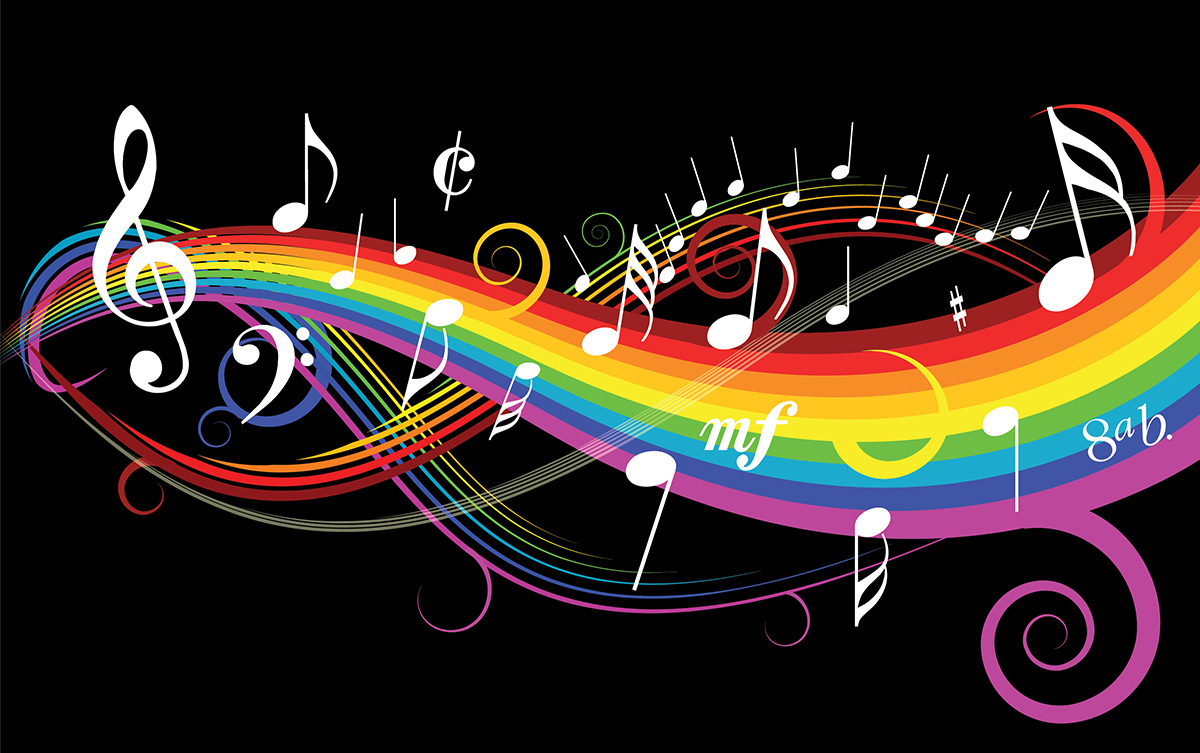
The full Washington Master Chorale will return for its annual holiday concert tradition with “Thine Own Sweet Light” on Friday, Dec. 19 and Sunday, Dec. 21 at St. Ann’s Catholic Church (D.C.) and Church of the Epiphany (D.C.).
The concert will feature the rich sounds of the 50-voice, a cappella chorus performing lush, seasonal choral music inspired by the theme of light. Highlights include Edvard Grieg’s “Ave Maris Stella,” Eric Whitacre’s “Lux Aurumque,” and Christopher Hoh’s “Holy, Holy, Holy is the Lord God of Hosts.” The program will also present a new work by Barcelona composer Josep Ollé i Sabaté, along with charming holiday folk songs and seasonal favorites.
For more details, visit the Washington Master Chorale website.
Music & Concerts
Queer mega stars (and allies) ready to take D.C. stages this fall
Watch LGBTQ icons light up stages across the DMV as they sing, dance, and drag their way through spectacular shows.

One of the best ways to welcome fall is by catching LGBTQ performers (and their allies) lighting up some of the D.C. area’s biggest stages. From country and pop to drag and rock, the season is packed with shows you won’t want to miss.
Maren Morris – The country, rock, and pop diva—known for hits like “The Bones” and for standing up against Nashville’s anti-LGBTQ voices—takes the stage at Wolf Trap (1551 Trap Rd, Vienna, Va.) on Friday, Sept. 12 at 8 p.m. Tickets start at $64.
RuPaul – The mother of modern drag and host of “RuPaul’s Drag Race” will spin a DJ set at Echostage (2135 Queens Chapel Rd NE) in Northeast D.C. on Sept. 20. Before RuPaul swaps wigs for headphones, Trade and Number 9 owner Ed Bailey will warm up the decks. For tickets and details visit echostage.com.
Conan Gray – The queer pop prince, celebrated for his Gen Z anthems like “Heather” and “Maniac,” brings his Wishbone Pajama Show to EagleBank Arena in Fairfax, VA, (4500 Patriot Cir) on Sept. 20 at 8 p.m. Tickets start at $113. For more info visit shop.conangray.com/pages/tour.
All Things Go Music Festival – With a lineup that includes Noah Kahan, Lucy Dacus, Kesha, Clairo, Doechii, and more, the beloved LGBTQ-friendly festival takes over Merriweather Post Pavilion (10475 Little Patuxent Pkwy, Columbia, Md.) Sept. 26–28. For tickets and details visit allthingsgofestival.com.
BERTHA: Grateful Drag – This unique tribute brings drag artistry and the sounds of the Grateful Dead to The Atlantis (2047 9th St NW) on Sept. 27. Tickets start at $47 at theatlantis.com.
Peach PRC – Rising Australian pop star and out lesbian, whose confessional tracks like “Perfect for You” and “Forever Drunk” have made her a queer TikTok darling, performs at The Atlantis on Sept. 29 at 6:30 p.m. The show is general admission only. Additional details are on theatlantis.com.
Addison Rae – The TikTok star-turned-pop princess, who’s crossed over into music with glossy hits like “Diet Pepsi” brings her sold out show to The Anthem (901 Wharf St., S.W.) on Sept. 30. Tickets are sold out, but resale options start around $80. For more info visit theanthemdc.com.
The Rocky Horror Picture Show 50th Anniversary – Celebrate the cult classic that’s been a queer midnight-movie staple for decades, with Barry Bostwick (a.k.a. Brad Majors) at the Warner Theatre (513 13th St., N.W.) on Oct. 2 at 8 p.m. Tickets start at $41 via Ticketmaster.
Chaka Khan, Patti LaBelle, Gladys Knight & Stephanie Mills – Four legends, one stage. Between Khan’s funk, LaBelle’s soul, Knight’s R&B, and Mills’ powerhouse vocals, this concert at Capital One Arena (601 F St NW) on Oct. 3 at 8 p.m. promises pure diva magic. Tickets start at $103. For more details visit capitalonearena.com.
Lorde – Joined by The Japanese House and Chanel Beads, the Grammy-winning New Zealand singer-songwriter behind “Royals” and “Solar Power” returns to The Anthem on Oct. 4 at 7 p.m. Lorde has long been embraced by queer fans for her dreamy pop and subversive lyrics. For more info visit theanthemdc.com.
Andy Bell (of Erasure) – The British queer rock icon, best known for synth-pop classics like “A Little Respect” and “Chains of Love,” brings his Ten Crowns Tour to the Lincoln Theatre (1215 U St., N.W.) on Friday, Oct. 17 at 8 p.m. Tickets are $90.45.
Doechii – The self-described queer “Swamp Princess”—and WorldPride 2025 headliner—continues her breakout year with the Live from the Swamp Tour at The Anthem on Oct. 21 at 8 p.m. Known for blending rap, R&B, and avant-garde performance art, Doechii is one to watch. Tickets start at $153.
Neon Trees – The out-and-proud Utah rockers behind “Everybody Talks” and “Animal” perform at the Lincoln Theatre on Friday, Oct. 24 at 8 p.m. Lead singer Tyler Glenn, who came out publicly in 2014, has become a strong queer voice in alternative rock. For tickets and info visit impconcerts.com.
Sasha Colby – The “RuPaul’s Drag Race” Season 15 winner strips down on the Stripped II Tour at the Warner Theatre on Nov. 2 at 8 p.m. Tickets available now on Ticketmaster.
Lola Young – The bisexual indie-pop sensation, whose raw songwriting has earned her millions of TikTok fans and multiple chart soaring hits visits The Anthem on Nov. 9 at 8 p.m. Tickets are still available.
Opera Lafayette
Featuring Mary Elizabeth Williams as Dido
+ Elijah McCormack, Chelsea Helm
Oct. 16, 7:30 p.m.
Sixth & I
PostClassical Ensemble
The Pale Blue Do: A Musical Voyage Inspired By Nature
Featuring National Geographic’s Enric Sala, Guest Curator
Wednesday, November 19, 7:30 p.m.
Terrace Theater
Washington Concert Opera
Starring Kate Lindsey, Theo Hoffman, John Moore, and Fran Daniel Laucerica
Nov. 23, 6 p.m.
Lisner Auditorium
Washington Master Chorale
An intimate a capella concert taking place in an architectural jewel, featuring cherished choral gems from Anglican and Catholic tradition and early American hymns. The concert will also present the world premiere of Christopher Hoh’s Holy, Holy, Holy is the Lord God of Hosts, and hymn singing featuring Robert Church, organist and choirmaster at St David’s.
Oct. 18, 7:30 p.m.
October 19, 5 p.m.
St. David’s Episcopal Church
Music & Concerts
Cyndi Lauper ready to have fun in Virginia
Superstar to bring final leg of farewell tour to Jiffy Lube Live
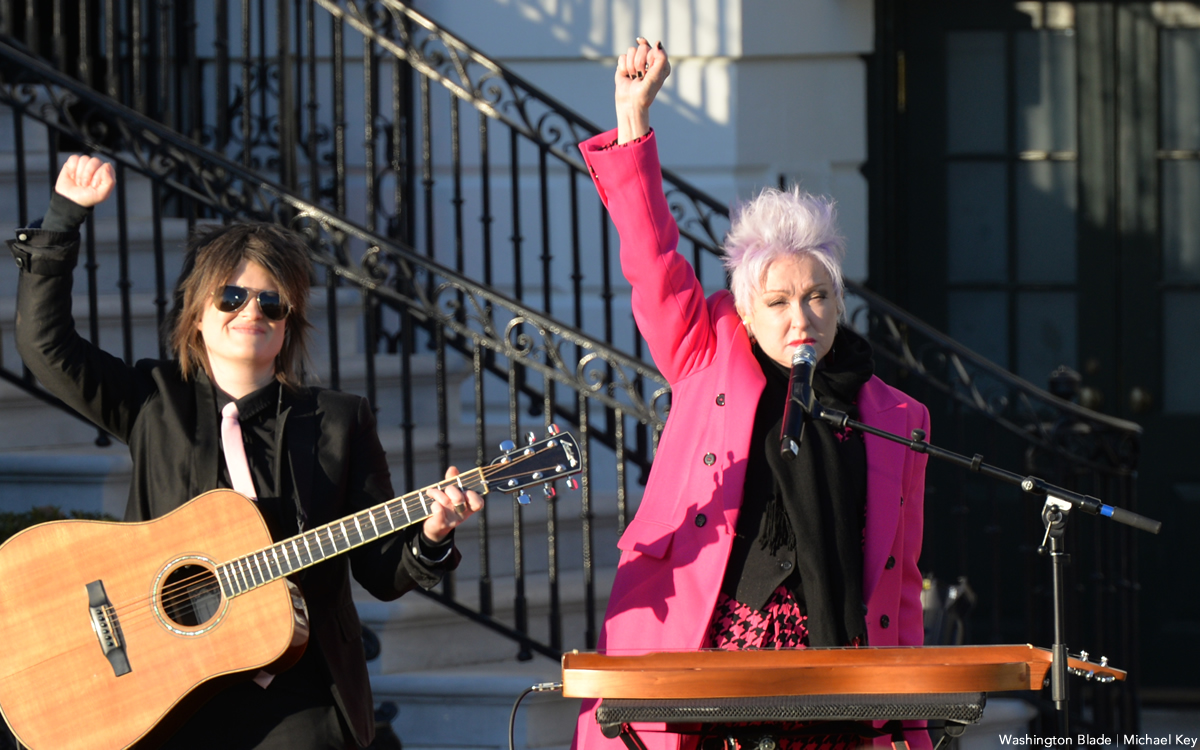
Superstar Cyndi Lauper will bring the final leg of her farewell tour “Girls Just Wanna Have Fun” to Bristow, Va., on Thursday, July 24 at Jiffy Lube Live.
Lauper’s international Farewell Tour – her first major headlining run in a decade – kicked off in North America last October, and included her first time ever headlining (and selling out) Madison Square Garden. Lauper’s performances have earned raves from the New York Times, Rolling Stone, Billboard, and many more, and surprise guests have included Chaka Khan, Sam Smith, and Hayley Williams. The tour just visited the U.K. and Europe, and will head to Australia and Japan in April.
Tickets are available on Live Nation’s website.
-

 Congress1 day ago
Congress1 day agoEXCLUSIVE: George Santos speaks out on prison, Trump pardon, and more
-

 Health4 days ago
Health4 days agoThe harsh truth about HIV phobia in gay dating
-

 Arts & Entertainment5 days ago
Arts & Entertainment5 days agoCynthia Erivo, Eva Victor, and ‘Blue Moon’ bring queer representation to Golden Globe film nominations
-

 Spain3 days ago
Spain3 days agoVictory Institute honors transgender Spanish senator in D.C.


